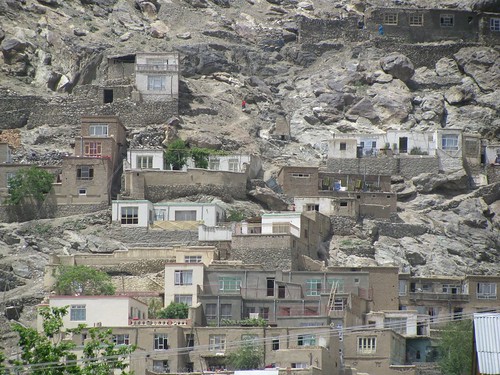Tuesday
Jul152008
Obama lays out his five-fold national security plan
Democratic presidential candidate Barack Obama gave a speech on U.S. foreign policy, national security and strategy in Iraq at the Woodrow Wilson Center in Washington D.C. Obama was introduced by Wilson Center director Lee Hamilton who started jovially referencing an incident where Obama had to show ID at a DC gym.
Obama began his speech with a historic reference to the Marshall plan quoting from General Marshall's speech about rebuilding enemy nations, "What is needed? What can best be done? What must be done?"
The junior Democratic senator criticized the governmental response to Sept. 11 listing things "We could've done." He described the war in Iraq as one "that had nothing to do with the 9/11 attacks." He advocated a national security strategy that goes "not just in Baghdad."
He outlined his national security policy based on five points: "ending the war in Iraq responsibly; finishing the fight against al-Qaida and the Taliban; securing all nuclear weapons and materials from terrorists and rogue states; achieving true energy security; and rebuilding our alliances to meet the challenges of the 21st century."
Obama defended his position on ending the war in Iraq. "George Bush and John McCain don't have a plan for success in Iraq. They have a plan for staying in Iraq." He defined victory as leaving Iraq to a sovereign government that can care with its people and an enemy whose power cannot reemerge. He laid out a redeployment plan for U.S. forces to leave Iraq by 2010. He said he would shift power to Afghanistan putting two more combat brigades in Afghanistan as well as non-military aid.
He also called to stop "bankrolling the ambitions for Iran," by purchasing foreign oil. He classified global warming as a national security issue. He also called for an increase in foreign assistance to $50 billion for development as a means of security.
Obama began his speech with a historic reference to the Marshall plan quoting from General Marshall's speech about rebuilding enemy nations, "What is needed? What can best be done? What must be done?"
The junior Democratic senator criticized the governmental response to Sept. 11 listing things "We could've done." He described the war in Iraq as one "that had nothing to do with the 9/11 attacks." He advocated a national security strategy that goes "not just in Baghdad."
He outlined his national security policy based on five points: "ending the war in Iraq responsibly; finishing the fight against al-Qaida and the Taliban; securing all nuclear weapons and materials from terrorists and rogue states; achieving true energy security; and rebuilding our alliances to meet the challenges of the 21st century."
Obama defended his position on ending the war in Iraq. "George Bush and John McCain don't have a plan for success in Iraq. They have a plan for staying in Iraq." He defined victory as leaving Iraq to a sovereign government that can care with its people and an enemy whose power cannot reemerge. He laid out a redeployment plan for U.S. forces to leave Iraq by 2010. He said he would shift power to Afghanistan putting two more combat brigades in Afghanistan as well as non-military aid.
He also called to stop "bankrolling the ambitions for Iran," by purchasing foreign oil. He classified global warming as a national security issue. He also called for an increase in foreign assistance to $50 billion for development as a means of security.




 Tuesday, July 15, 2008 at 1:28PM
Tuesday, July 15, 2008 at 1:28PM










The Future of Afghanistan
Afghanistan has a "strong central government" in Kabul, but it needs to build a strong local government, said Popal. Fifty percent of all Afghanis live in tiny villages with populations fewer than 300. The largest challenge for Afghanistan is to delegate authority local providences, municipalities and districts throughout the country.
There are several roadblocks to creating this system. Afghanistan is a multi-ethnic country, where 60 percent of its population is under 25 years old. There are many tribal conflicts within the country, and drug dealers and the Taliban have been able to regain control of several areas. Still, Popal was optimistic of the situation and believed peace and stability could be restored within five to 10 years. "If a...previous Taliban wants to have civil life and be loyal the Constitution of Afghanistan and he wants to be part of the system, then he is most welcome," said Popal.